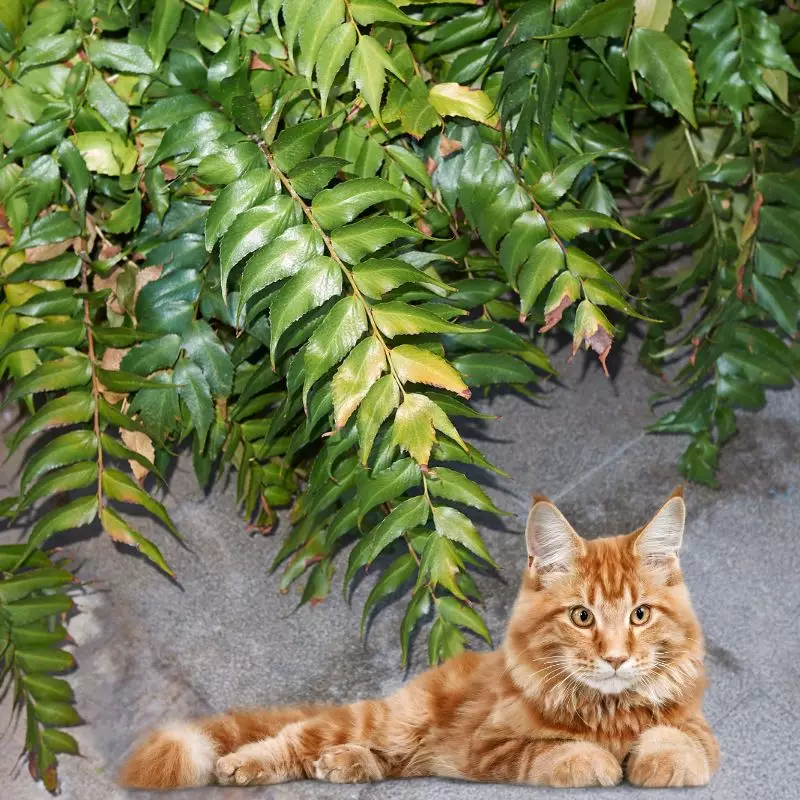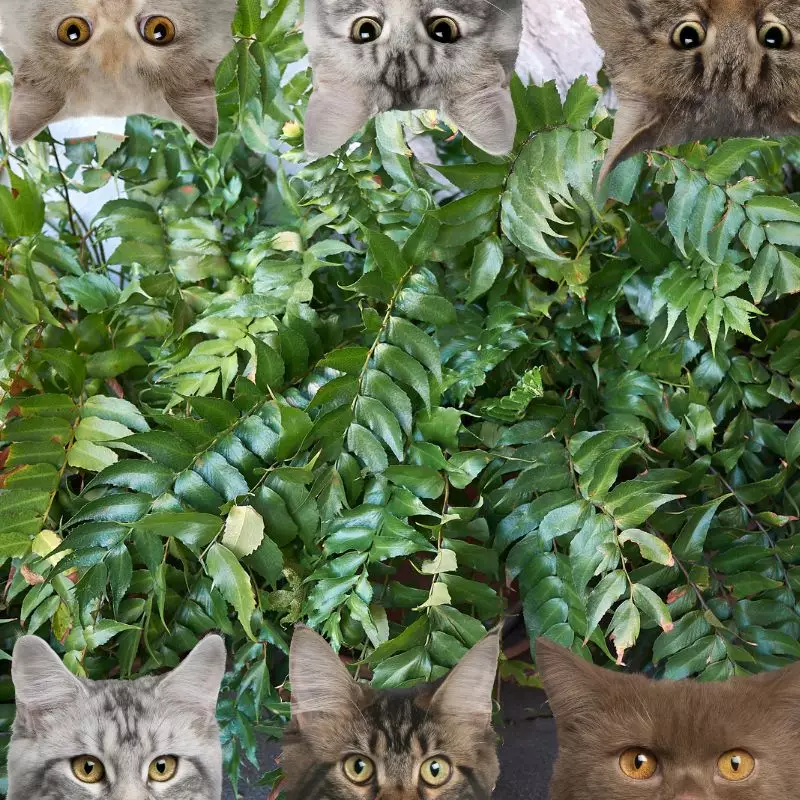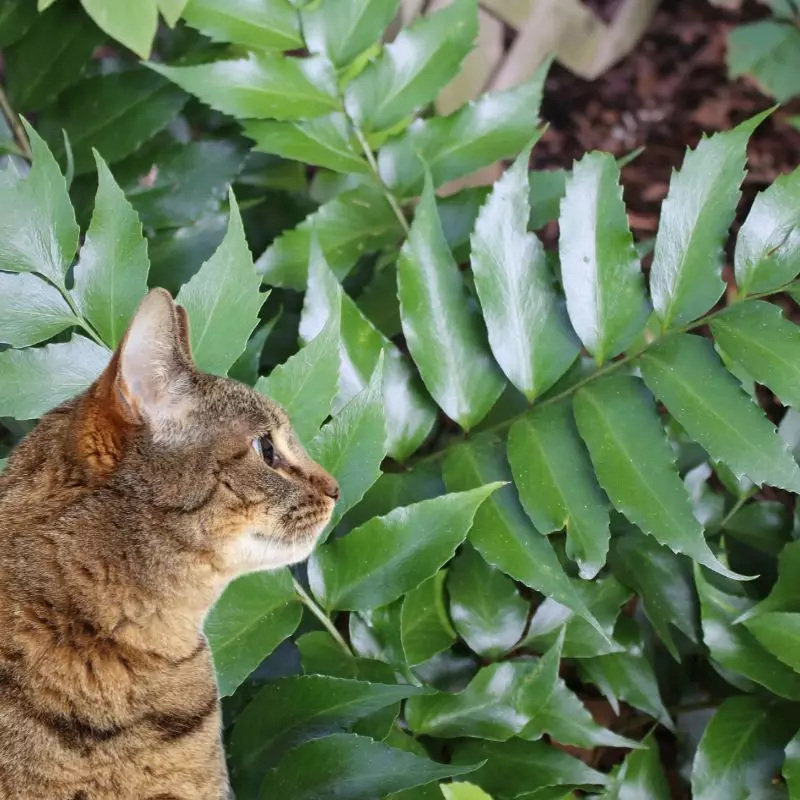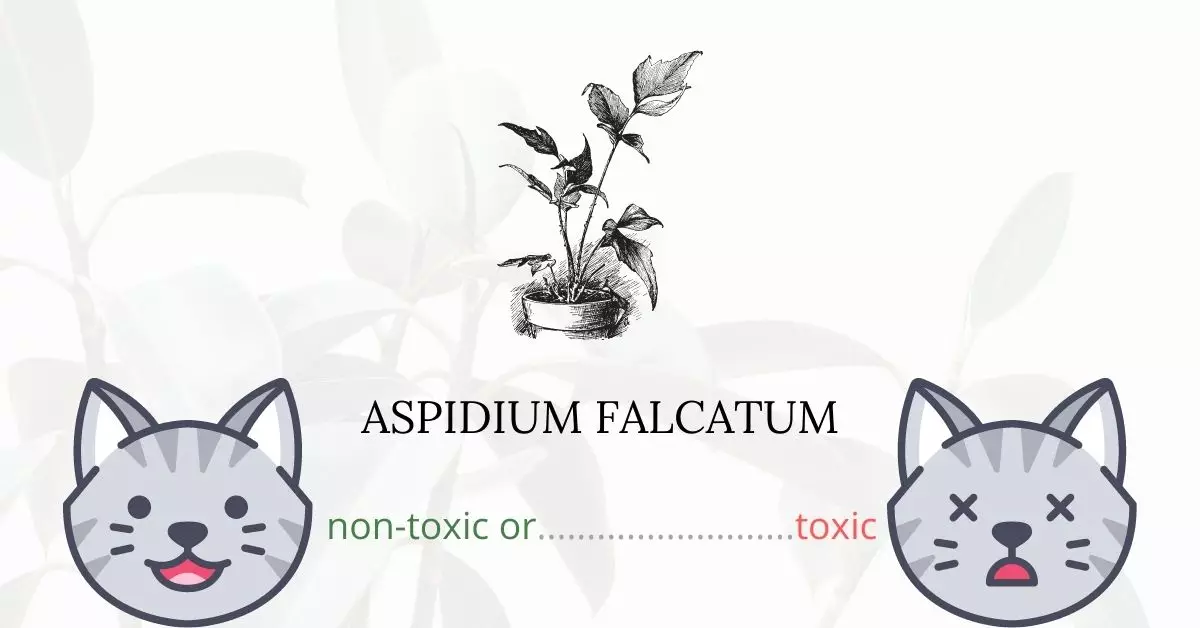Aspidium falcatum, commonly known as holly fern, is non-toxic to cats.
Through collaborative efforts with a team of experienced DVMs (doctors of veterinary medicine), we strive to provide accurate and up-to-date information on the potential risks associated with various plants. Drawing insights from both our veterinary experts and high-authority websites such as the ASPCA and PetMD, we can confirm that the holly fern is also non-toxic for dogs and horses. While the plant does not contain any properties known to be harmful to felines, it’s always prudent for cat owners to monitor their pets and be aware of the general risks and effects of cats ingesting plants.
Can Cats Eat Aspidium Falcatum or Holly Fern?

Cats are naturally playful and curious. They tend to try things that are interesting to them which also involves licking and chewing on plants around them.
If your cat nibbles on a holly fern, it should not be a reason for concern. However, it is crucial to remember that fertilizers, pesticides, and other compounds containing chemicals used on plants may be harmful to your cat if swallowed.
Cats lack the enzymes needed to digest plant materials since they are carnivores. While taking a modest amount of Aspidium Falcatum is not a serious worry, swallowing a large amount of the plant may cause cats to have digestive distress.
What is Aspidium Falcatum or Holly Fern?

Other popular names for Aspidium Falcatum are Holly fern, Fish Tail, Fish Tail Fern, Japanese Holly, Japanese Holly Fern, and Polystichum Falcatum. The name holly fern comes from the leaflet’s similarity to the leaves of a holly plant. It is usually evergreen, although in colder climates it can be deciduous.
Scientifically called Cyrtomium Falcatum, holly fern belongs to the wood fern family of Dryopteridaceae. This perennial plant that is also commonly grown as an ornamental is native to eastern Asia. In the wild, this sturdy, scaly fern thrives in damp, humus-rich soil in a shaded position. Its natural habitats are damp, cold, well-drained hardwood woods.
Keeping Cats Away From Aspidium Falcatum or Holly Fern

Plants should not be included in a feline’s diet in general. Train your cat to avoid plants as much as possible, particularly ones that are unfamiliar to you. If you have any potted plants at home, keep them out of your cat’s reach.
Plants to Avoid For Your Cats
If you are a cat owner and unsure if the plants growing in your yard are harmful to your cats, check out this list of toxic plants for cats. You can also check our list of non-toxic plants for cats.





